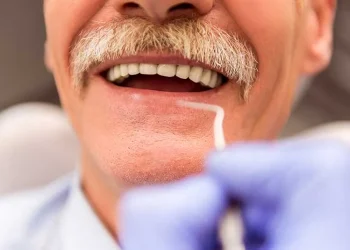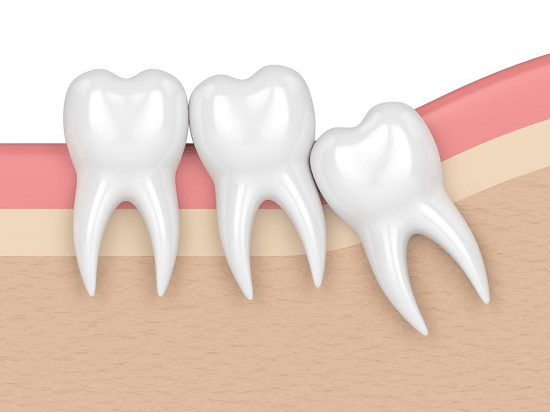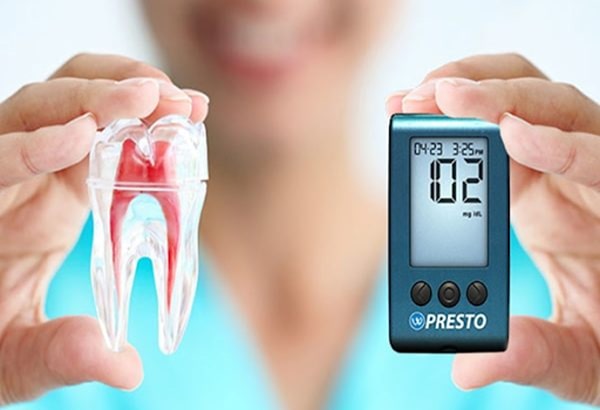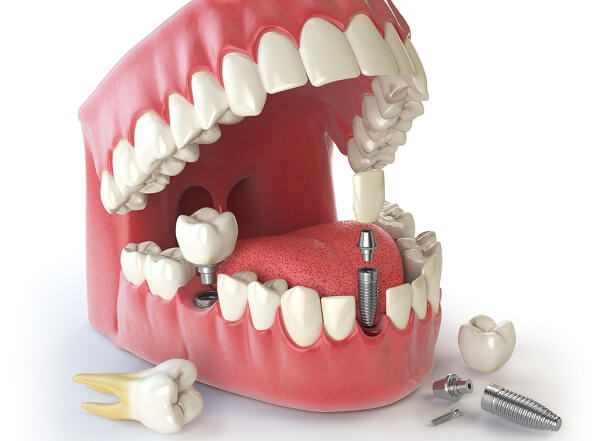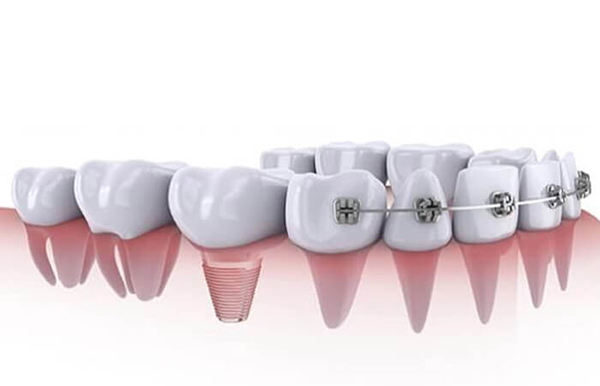Contents
Eating with Porcelain Crowns and Tips to Take Care of Your Crowns
Porcelain crowns are strong and durable dental crowns used to restore damaged or decayed teeth and improve the appearance of a smile. They match the color and shape of a patient’s natural teeth and blend in seamlessly with the rest of the smile. If you are considering this option, you may be wondering when you can finally eat after getting porcelain crowns.
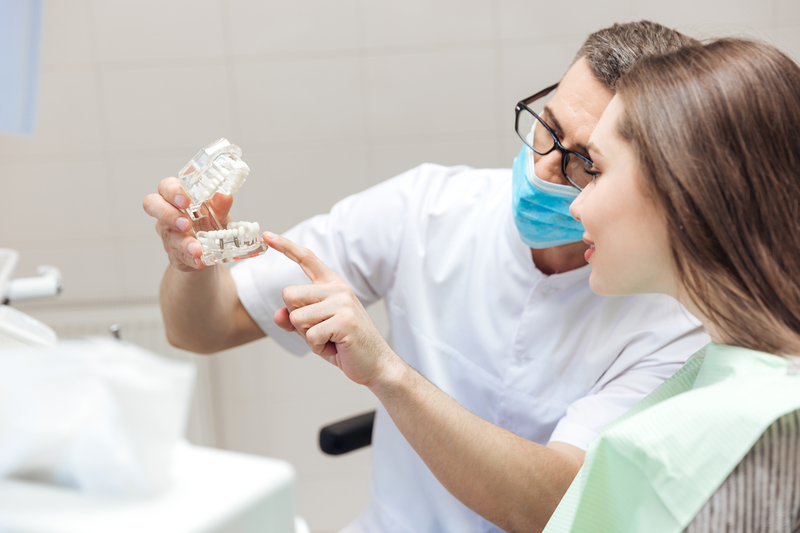
How Long Do You Have to Wait to Eat After Having Porcelain Crowns?
With the development of advanced science and technology, porcelain crowns can change the shape and color of teeth, restore function to broken or damaged teeth, and ensure high aesthetics without causing damage to the gum tissue. Therefore, you can eat and chew normally right after getting a porcelain crown. However, with crowns on your teeth, you should be more careful with your diet on the first few days.
The First Few Days After Getting Porcelain Crowns
After getting porcelain crowns, it is important to take extra care of your teeth during the first few days. This is because the crowns need time to properly bond to your teeth and become a permanent fixture.
Ensuring that you avoid anything hard or crunchy is crucial since it can damage the bonding process. Instead, it is recommended that you stick to soft foods that are easy to chew, such as soup, mashed potatoes, scrambled eggs, and other similar foods that are gentle on the teeth.
In addition to avoiding hard foods, it is also important to avoid consuming anything too hot or cold, as this can cause sensitivity in your teeth. It is best to stick to foods and drinks that are at room temperature, or only slightly above or below. It is also suggested that you avoid foods and drinks that have a high sugar content, as this can lead to tooth decay or other dental issues.
After the First Few Days
After the first few days, it is important to gradually introduce harder foods into your diet to ensure that your teeth and gums are healing properly. You may start by including foods such as cooked vegetables, soft fruits, and tender meats.
However, it is important to note that you should still avoid anything that is too hard or crunchy, such as nuts, popcorn, and hard candy. These foods can potentially dislodge the delicate structure of your crowns and create damage.
Additionally, you should avoid biting into anything directly with your front teeth since this can cause significant harm to your crowns. Instead, use your back teeth to chew your food. You can also consider incorporating softer foods, such as smoothies and soups, into your diet to help minimize the strain on your newly placed crowns.
Long-Term Care
To ensure the longevity of your porcelain crowns, aside from maintaining a good dental hygiene routine, it is also important to be mindful of the foods and drinks you consume. As mentioned earlier, certain foods and drinks such as coffee, tea, and red wine can cause staining on your teeth and porcelain crowns.
However, it is not necessary to completely avoid these items. Instead, try to consume them in moderation, and if possible, use a straw to reduce contact with your teeth. It is also important to rinse your mouth with water after consuming these items to help reduce staining.
Foods to Eat After Getting Porcelain Crowns
After getting porcelain crowns, it is important to be careful with the foods you eat, especially during the first few days. Soft foods are the best option to avoid damaging the crowns. Here are some soft foods that you can eat to ensure that you are still getting the necessary nutrients:
- Soups: There’s a wide variety of broths and creamy soups you can try, such as tomato, butternut squash, or chicken noodle. You can even make your own soups with fresh ingredients and experiment with different flavors.
- Mashed vegetables: Mashed sweet potatoes or cauliflower can be a great addition to your meals. Add some herbs or spices for extra flavor and nutrition.
- Soft fruits: For a sweet and healthy treat, try ripe bananas, peaches, or canned fruits like pears or applesauce. These can be great for snacking or as a dessert.
- Yogurt: Plain or vanilla yogurt is a great option for a healthy and filling snack. You can add your own fruit or honey to sweeten it up and make it more flavorful.
- Smoothies: If you’re looking for a refreshing and nutritious drink, try blending together your favorite fruits with some milk or yogurt. You can experiment with different combinations and add some greens like spinach or kale for an extra boost of vitamins and minerals.
- Beef jerky: For a protein-packed snack, try some beef jerky. It can be a great option when you’re on the go or need a quick energy boost.
- Apples: Apples provide fiber and vitamins. You can eat them as a snack or add them to your meals for some extra crunch and flavor.
- Carrots: Carrots are rich in beta-carotene, which is essential for good eye health.
Foods to Avoid After Getting Porcelain Crowns
Hard and Crunchy Foods
After getting porcelain crowns, it is important to avoid hard and crunchy foods for the first few days. This is because the crowns need time to properly bond to your teeth and become a permanent fixture. Hard and crunchy foods can potentially dislodge the delicate structure of your crowns and create damage.
Foods to avoid include:
- Nuts: Hard nuts like almonds, peanuts, and cashews can damage your crowns.
- Popcorn: The kernels can get stuck between your teeth and crowns, and the husks can cause damage.
- Hard candy: Hard candy can chip or break your crowns.
- Ice: Chewing on ice can cause your crowns to crack or chip.
Sticky and Chewy Foods
Sticky and chewy foods can also cause damage to your crowns. They can pull on your crowns and cause them to come loose from your teeth. Avoiding these foods can help ensure the longevity of your crowns.
Foods to avoid include:
- Taffy: Chewy candy like taffy can pull on your crowns and cause them to come loose.
- Caramel: Sticky caramel can get stuck between your teeth and crowns and cause damage.
- Gum: Chewing gum can pull on your crowns and cause them to come loose.
Foods and Drinks That Stain
Certain foods and drinks can stain your teeth and porcelain crowns. While it is not necessary to completely avoid these items, it is important to consume them in moderation and rinse your mouth with water afterward to help reduce staining.
Foods and drinks to consume in moderation include:
- Coffee and tea: These drinks can cause staining on your teeth and porcelain crowns.
- Red wine: Red wine can cause staining on your teeth and porcelain crowns.
- Dark-colored fruits and vegetables: These foods can cause staining on your teeth and porcelain crowns.
How to Take Care of Your Crowns
Once you have your crowns in place, it is important to take good care of them to ensure their longevity and keep your smile looking its best. Follow these tips and guidelines down below for taking care of your crowns.
Brush and Floss Regularly
One of the most important things you can do to keep your teeth healthy is to brush them twice a day with a soft-bristled toothbrush and fluoride toothpaste. This helps to remove plaque and bacteria from the surface of your teeth, which can cause tooth decay and gum disease if left unchecked.
But brushing alone is not enough to ensure optimal oral health. You also need to floss at least once a day to remove plaque and food particles from between your teeth and your crowns. This is because even the most diligent brushing cannot reach all the areas between your teeth, and flossing helps to dislodge any debris that may be hiding there.
Use a Non-Abrasive Toothpaste
When it comes to the care of your crowns, using the right type of toothpaste is crucial. Toothpaste that is too abrasive can be harmful to the surface of your crowns, causing them to become scratched and lose their beautiful shine and luster. Therefore, it is important to choose a non-abrasive toothpaste that is gentle on your crowns and will not cause any damage.
Avoid Staining Foods and Drinks
When you get crowns, it’s important to care for them just as you would your natural teeth. Certain foods and drinks have the potential to stain your crowns over time, just as they can stain your natural teeth.
To ensure the longevity of your crowns, it’s best to avoid consuming foods and drinks that are known to cause staining. This includes beverages such as coffee, tea, and red wine, as well as dark-colored fruits and vegetables.
However, if you do indulge in these foods and drinks, it’s recommended that you rinse your mouth with water afterward to help remove any staining agents.
Wear a Mouthguard When Playing Sports
If you are someone who participates in sports, it is crucial that you take all necessary precautions in order to protect your body. This includes protecting your teeth and gums.
One way to do so is by wearing a mouthguard. Mouthguards are designed to absorb the impact of a blow to the face, which can help reduce the risk of damage to your crowns.
Additionally, mouthguards can be custom-fitted to your teeth by a dentist, ensuring that they fit comfortably and provide maximum protection. It is important to remember that crowns can be an expensive cosmetic dental treatment, and that protecting them is an investment in your oral health and overall well-being.
Don’t Use Your Teeth as Tools
Using your teeth for anything other than eating can cause damage to your dental crowns. The thin layer of porcelain or resin that covers the front of your teeth is designed to improve the appearance of your smile, but it is not as strong as your natural teeth.
When you use your teeth as tools to open packages or tear tags off clothing, you risk chipping or cracking your crowns. This can result in costly repairs or even replacement of the crowns.
Therefore, it is important to avoid using your teeth as tools and to instead use scissors, pliers, or other appropriate tools for such tasks. Be cautious and protect your crowns by using them only for their intended purpose – chewing food.
Visit Your Dentist Regularly
Regular dental checkups are essential for maintaining not only the health and appearance of your crowns but also your overall oral health.
During a dental checkup, your dentist will not only check the condition of your crowns but also examine your teeth, gums, and mouth for any signs of decay, infection, or other oral health issues.
If any problems are detected, your dentist can recommend the necessary treatments or adjustments not only for your crowns but also for your other teeth and gums. Additionally, regular dental checkups can help prevent future oral health problems and save you from more extensive and costly treatments in the long run.


